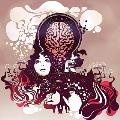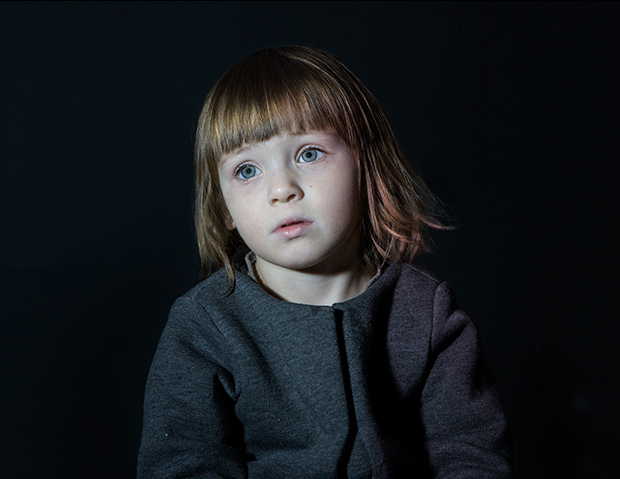
What is?
Posts: 66 Joined: 03-Dec-2012 Last visit: 02-May-2021 Location: Ain sof
|
Ok so first off I started this thread on another forum I am an active member of (Shaman-Australis) so I will give the link here ( http://www.shaman-austra...ndex.php?showtopic=41763 ) So if you really want to get into this thread atleast read every post I made in that thread because I made more than one. Now, what do you think?
|
|
|
|
|

DMT-Nexus member
Posts: 990 Joined: 13-Nov-2014 Last visit: 05-Dec-2020
|
Horticulture - So that graduating students have enough fundamental knowledge to troubleshoot their own gardens, whatever the climate or species. EDIT - This would be a great elective in university, with the students able to enjoy the 'fruits' of their labour in those states that allow it. Inconsistency is in my nature. The simple PHYLLODE tekI'm just waiting for these bloody plants to grow
|
|
|

DMT-Nexus member
Posts: 55 Joined: 07-Jun-2015 Last visit: 18-Nov-2019
|
Managing your finances.
I can't for the life of me figure out why this isn't taught in school. Like, basic accounting and budgeting.
There is no freedom in modern society without financial independence. To be truly free, we must stop being indebted slaves.
|
|
|

DMT-Nexus member

Posts: 14191 Joined: 19-Feb-2008 Last visit: 22-Nov-2025 Location: Jungle
|
That's my day job, so I got a lot to say on this lol  I think school needs to be completely redesigned, not just adding subjects. I think work should be done by multidisciplinary projects, not by isolated subjects. For example let's say the subject is vegetables. Now, kids could learn how to grow them, how to cook them, how to classify them scientifically, how the biology of vegetables is, the history of man's relationship with farming, etc.. That way you'd get an integrated view of the universe, which is way more accurate than separating things into boxes and memorizing information like a robot in a mass production line. Also I'd question the idea of one teacher per class. I think there should always be at least two teachers per class. It could for example be one teacher, and one assistant which would be a pedagogy/education student who would be learning in practice, instead of just theory in university. That way it is much better to work and having complementary points of view, also being able to give more individualized attention to some students while others continue learning with the main class. Tests need to go, at least the way they are now. It is stupid to think that the stressful task of memorizing information and jotting down on a paper is the best way to tell if a student learned. I believe in continous evaluation through projects/tasks, creating a portfolio of the work done, evaluating based on class interaction, etc. And also giving options and adapting, if some student preffers doing tests, then a bigger percentage of their evaluation can be that way, if others preffer doing projects, then you look more at that. I also think that kids should not only be divided according to age, but it would be important to create a variety of groups based on for example mutual interests, where there would be a diversity of age. That would give a more accurate representation of society outside school (though I also think it's good that at least in some activities they are divided by age or level) Lastly, as for subjects that are rarely taught in schools but that should be included in the multidisciplinary projects, I would say that I would include: Gardening, sexual education (not just 'lets put a condom in a banana' but also what gives pleasure to guys and girls, how can one manage/control orgasms better, what are one's expectations in sex, looking critically at pornography too, etc), nutrition and sports/exercise/physiology as a joint subject, martial arts, survival (in nature like wild food foraging, building a hut hunting fishing etc), existential/spirituality/philosophy, as well as more transversal subjects such as critical thinking/mediation/conflict resolution. Im sure there are others but that's what occurs to me now.
|
|
|

DMT-Nexus member

Posts: 5267 Joined: 01-Jul-2010 Last visit: 13-Dec-2018
|
I would add Caribbean History to the curriculum. There is a rich history to those islands, and it is very interesting to learn about our past through their view of history. The way they have documented and view American (and also European) history is also intriguingly different from what our traditional textbooks tell us. endlessness wrote:
Also I'd question the idea of one teacher per class. I think there should always be at least two teachers per class. It could for example be one teacher, and one assistant which would be a pedagogy/education student who would be learning in practice, instead of just theory in university. That way it is much better to work and having complementary points of view, also being able to give more individualized attention to some students while others continue learning with the main class.
This is pretty much exactly how they do it around where I am. The assistants are formally called Teaching Assistants, and what you outline is pretty much their job responsibility. The only difference is that they don't have to be a pedagogy/education student, although they tend to be. It is also not mandated that they be in every classroom, but to match an assistant for every single class would cause some serious budget issues by my estimation. "Science without religion is lame. Religion without science is blind" - Albert Einstein
"The Mighty One appears, the horizon shines. Atum appears on the smell of his censing, the Sunshine- god has risen in the sky, the Mansion of the pyramidion is in joy and all its inmates are assembled, a voice calls out within the shrine, shouting reverberates around the Netherworld." - Egyptian Book of the Dead
"Man fears time, but time fears the Pyramids" - 9th century Arab proverb
|
|
|
DMT-Nexus member
Posts: 6 Joined: 15-Aug-2015 Last visit: 06-Sep-2015 Location: New York
|
logic, rhetoric, observation, awareness, personal honesty
|
|
|

DMT-Nexus member

Posts: 682 Joined: 30-Dec-2012 Last visit: 16-Jun-2024 Location: The Twilight Zone
|
Accurate history that isn't Euro-centric or whitewashed. Harm reduction within the context of sex-ed and drug use. I'd change nearly everything about the current system to be honest, but these two things stick out to me. "Consciousness grows in spirals." --George L. Jackson If you can just get your mind together, then come across to me. We'll hold hands and then we'll watch the sunrise from the bottom of the sea...
But first, are you experienced?
|
|
|

DMT-Nexus member
Posts: 180 Joined: 08-Aug-2015 Last visit: 15-Jan-2025
|
What they don't speak about at school :
First and most important thing : EMOTION ; they paint a rationalist version of the mind, but we first are emotion - and then we try to stick some rational stuff on top of that. Most of the time, when you argue with someone, the position we take are for emotional reason - and then we justify them with rational elements.
Let's speak about non-violent communication for exemple ; let's learn how to share and process emotion in a group, in a healthy way.... Nothing of that exist, it seems so surrealistic !
Seconde aspect : Taking decisions together.
I have been in so much project, eco-project or political circle, social movements....
And we lack SO MUCH of abilities to listen to each other, respond in synthetic and non-eogistic way, and TAKE DECISIONS. Rather, school teach us hierarchic order, so we never learn how to decide, compromise, respect decision in a group.... a BASIC feature of any human society!!! My god !!!
Mindfulness, Meditation. My girlfriend is taking now a 3 month formation to teach this tools to children in school. It's SO interesting !!! Imagine all the benefits that could have, on the emotional body, on concentration, on well being! And imagine being teach that as a child - i m so jealous now.... so crapy school education i got... evryday bored, deception, angry, i never wanted to go to school. 12 years of my childhood ruined into this BULLSHIT. i m so angry because of that.
|
|
|

xͭ͆͝͏̮͔̜t̟̬̦̣̟͉͈̞̝ͣͫ͞,̡̼̭̘̙̜ͧ̆̀̔ͮ́ͯͯt̢̘̬͓͕̬́ͪ̽́s̢̜̠̬̘͖̠͕ͫ͗̾͋͒̃͛̚͞ͅ
Posts: 1716 Joined: 23-Apr-2012 Last visit: 23-Jan-2017
|
Quote:What do you personally think needs to be added to the modern day curriculum. An opt-out for boring subjects. I also think that everything should be taught for what you can find teachers. A kid wants to learn how to spay cool graffitis and understand Japanese, so he/she can read more mangas? Got teachers? So shall it be...
|
|
|

DMT-Nexus member
Posts: 1311 Joined: 29-Feb-2012 Last visit: 18-Jul-2023
|
I think the education system needs remodeled entirely.
I really think early on students should be evaluated to determine what subjects & areas they perform best in & an education plan should be created based on individual strengths & weaknesses.
Much of the stuff I learned in school I will never use & many of us are in the same situation.
I think through a system that looks at strengths & potential application of skills in the job feild & further education we would find alot of talented individuals that otherwise would have trouble finding or never even realize their potential.
|
|
|

DMT-Nexus member
Posts: 368 Joined: 09-Jun-2011 Last visit: 27-Nov-2020
|
Quetzal7 wrote:What they don't speak about at school :
First and most important thing : EMOTION ; they paint a rationalist version of the mind, but we first are emotion - and then we try to stick some rational stuff on top of that. Most of the time, when you argue with someone, the position we take are for emotional reason - and then we justify them with rational elements.
Let's speak about non-violent communication for exemple ; let's learn how to share and process emotion in a group, in a healthy way.... Nothing of that exist, it seems so surrealistic !
Seconde aspect : Taking decisions together.
I have been in so much project, eco-project or political circle, social movements....
And we lack SO MUCH of abilities to listen to each other, respond in synthetic and non-eogistic way, and TAKE DECISIONS. Rather, school teach us hierarchic order, so we never learn how to decide, compromise, respect decision in a group.... a BASIC feature of any human society!!! My god !!!
Mindfulness, Meditation. My girlfriend is taking now a 3 month formation to teach this tools to children in school. It's SO interesting !!! Imagine all the benefits that could have, on the emotional body, on concentration, on well being! And imagine being teach that as a child - i m so jealous now.... so crapy school education i got... everyday bored, deception, angry, i never wanted to go to school. 12 years of my childhood ruined into this BULLSHIT. i m so angry because of that.
Very much agree with this ^ Our brains don't come with an instruction manual, yet there is so much understanding now about how it works from the wisdom of Buddhism to our recently gained knowledge of mental chemistry and human behavior. One of the most important things kids need to learn how to to shape their behaviors and even feelings. Complementary to that discipline is an understanding of gaming theory for it describes how behaviors tend to form in groups of people. Add a dash of knowledge about group psychology and you have someone who not only understands how to control themself, but how to avoid being controlled by others.
|
|
|

DMT-Nexus member
Posts: 247 Joined: 09-Feb-2014 Last visit: 08-May-2021
|
In my opinion two things really grate my nerves. Math education and Sex-ed. endlessness wrote:That's my day job, so I got a lot to say on this lol  I think school needs to be completely redesigned, not just adding subjects. I think work should be done by multidisciplinary projects, not by isolated subjects. For example let's say the subject is vegetables. Now, kids could learn how to grow them, how to cook them, how to classify them scientifically, how the biology of vegetables is, the history of man's relationship with farming, etc.. That way you'd get an integrated view of the universe, I very much agree with you on this. As it is now in the scientific fields we're seeing multidisciplinary collaborations. Like how the algorithms and science developed and utilized in developing 3d models from MRI scans being used to generate substantially more accurate models of interstellar nebula. My primary problem with our school systems is math. In my experience going through school it was an arduous and tasking bit of work to do. This being despite the fact that as a kid even in preschool I was obsessed with math. I was CONSTANTLY told I was doing math 'wrong' because I multiplied 23x15 like the picture below. I loved math so much that despite being told time and time and time again that I was doing it wrong, i still figured out "math tricks" because I loved playing with it. I remember being flabbergasted trying to explain and argue to my teacher that the hatched lines was an exact replication of traditional multiplication in graphical form. Then just three years ago, the neighbor kid failing math for practically 5 years, tutors from school out the wazoo, special remedial math classes and still falling behind. I finally find out about it when he's screaming about not wanting to be held back. In five minutes of sitting with him I figured out he was a discalculate. Testing that weekend at a specialist confirmed it. Five years the school system consistently dropped the ball. Lo' and Behold those "math tricks" that my teachers told me were stupid and wrong when taught them to this kid brought him up to speed in the span of a single quarter. (And his teacher still had the audacity to tell him he was doing it wrong!!!, and accuse him of cheating) Quote:which is way more accurate than separating things into boxes and memorizing information like a robot in a mass production line. And there you have it. This is actually the source of our modern education system's ills. The industrial revolution is what really drove society to ensuring all kids went to school. The problem is that the schools had to churn out factory workers. All that's needed is rote memorization. While some reform has started to snake it's way into our education system it's far too slow. Common core math at least tries to address fundamental math theory (in a stupid manner IMO, as developed by the cash cow McGraw Hill) but falls pathetically short in it's application and implementation. School systems are implementing the CC standards and materials but with virtually little to no support for retraining teachers who have no idea how to teach the material effectively. If I ever had kids I would have serious pause to sending my kids to a public school. Nothing short of a complete revitalization from the ground up would convince me to send my kid to a state run school. That being said I'm actually impressed with the sex-ed classes that the school district had when I grew up. It was age appropriate material. It was matter of fact, no-nonsense, and quite frank. There wasn't an overly pushy tone towards abstinence, but a rather sensible "not until you're ready" slant. And it also included discussion on what it meant to "be ready". How sexual intercourse wasn't the only way to enjoy each other, some of which may be healthier for teens to engage in than sex. (I graduated in the late 90's) HOWEVER: The sex-ed curriculum the very same school system has now is some seriously mind bogglingly militant abstinence only drivel. One of the worksheets I've seen had a fill in the blank question that literally read "Name three or more people in your life who would be very disappointed in you if they found out you had pre-marital sexual contact."   : The teacher's copy said something along the lines of Acceptable answers include parents, siblings, and other family members, members of the clergy or church, teachers and school administrators, friends and family friends; students thinking more broadly may also be inclined to name idols like musicians, actors, or the president (emphasis mine) OrionFyre attached the following image(s):  multiply.png (9kb) downloaded 95 time(s).Roses are red
Violets are blue
Take the third hit
Then youuu....
|
|
|

DMT-Nexus member
Posts: 51 Joined: 14-Aug-2012 Last visit: 12-Feb-2020
|
How to interact with animals and especially horses. Learning how to ride one from early age.
Also how to express emotions. Learn how to express the whole emotional spectrum.
I think those two would be a great improvement even if the rest of the system is flawed. It is at least what I really missed in my (early) education.
|
|
|

DMT-Nexus member
Posts: 2151 Joined: 23-Nov-2012 Last visit: 07-Mar-2017
|
Cognitive Behavioral Techniques. People need to learn 1) how to think about their own mind and learn to recognize patterns in their thoughts and 2) that those patterns are changeable, and the techniques that let them do it. I imagine that this would probably be the single most effective way to combat the rising rates of depression and anxiety in the USA today. It could be pretty simple: learn the most common types of distorted thinking (catastrophizing, emotional reasoning, etc), and simple techniques on how to train yourself to think otherwise. Blessings ~ND "There are many paths up the same mountain."
|
|
|

DMT-Nexus member
Posts: 21 Joined: 08-Aug-2015 Last visit: 03-Jul-2019 Location: Laboratory
|
Voting for better, properly taught science. Not this remembering/regurgitating "facts" garbage. Praise thinking and teach science as a way to approach problems and life. Teaching sciences as they currently do pushes a lot of people out of science IMO. Society would be a lot better off if more people could think and act for themselves logically instead of what they've been told to say/do.
|
|
|

DMT-Nexus member
Posts: 36 Joined: 25-Jul-2015 Last visit: 20-Dec-2016
|
I think this is a great thread topic. I was a public school teacher for five years, about half the time as a long-term substitute in special education classrooms in hospital or locked facility settings, but also in regular secondary classrooms too: English, Math, Algebra, the basics. Sixteen years later I returned to the classroom as a volunteer teacher and mentor, working with high school students once to twice a week in an after school program the last four years. I'll mention more on this later, but hands down, best part of my work week. Here's what I've learned, which I think most adults are not aware of, especially if you haven't had an opportunity to spend a lot of time on the other side of the desk: Yes, the content can be important, but to me it's only 20% of the picture. All of you have great ideas, especially Endless describing multidisciplinary integrated teaching, how subjects are not isolated, but can be seen as part of whole. But to me the most important aspect of teaching is the other 80%. It's about being there, being present, and listening. Just a few kind words at the right moment can change the entire course of a young person's life to the better. When it happens, usually the adult doesn't know it, it's not something that can be consciously framed up and delivered; and sometimes the kids don't know it either, but they come to realize later, as they're the ones who ended up acting on it, having made a different decision in their life that they wouldn't have made otherwise. Students are intensely aware of which adults have had an impact on their lives. That to me is at the root of profound and lasting change. The students come back, and they tell you, an anecdotal paraphrase here - "Remember when you said to me that I was a good thinker with good ideas? That gave me the confidence to go on to college and study architecture. I can't tell you how happy I am now. I would have never have thought I could have done this." We're inculturated to look up to our teachers. As teachers what we say become these tape loops that play over and over again in the minds of the students. Positive encouragement goes a long, long way, far beyond what we realize. The real reform in teaching to me happens with the teachers. How does a society foster enlightened teachers? I'm not claiming to be enlightened in any way, but I was straight A kid, but got myself in some real trouble, expelled in l1th grade, and I thought life was over. And then my history teacher, just a great guy, who had taught me how to write a good term paper, the kind with footnotes, said, "Forget about it. You're smart, and you'll do better. Go on, go on to college. You don't need to finish up high school. Go apply to college, you'll be fine." I respected him, and he said it so plainly, no judgement, just being practical and patient. It made such a deep impression, and made all the difference, and I started up a year early at the University, why not. As a mentor and volunteer teacher now, through my professional field of work (I'll put it in arena of architecture, construction and engineering), a group of us from local professional firms adopt a local high school and take a group of students through a design project over the course of a year. So they learn from the ground up what it takes to design a building or a streetscape, how to develop a program, draw plans and sections, learn about all the systems in a building, but more importantly how to collaborate and develop ideas as a team and to solve problem, to do critical thinking together, to present and to speak in front of an audience. There's math involved, and aesthetic decisions, and we ask them to justify and talk about why make one decision over another. Really in the end we're just having fun hanging out, being creative, solving problems, exchanging ideas and enjoying each others company. That is the 80% of what makes teaching work. And seeing the light bulbs go on, and seeing and feeling the kids get inspired. There is almost nothing better. I leave my weekly volunteer gig fully energized and digging on life - otherwise I couldn't possibly put in the other sixty hour work weeks I put in. Everyone on the Nexus seems to be mentioning worthy topics for teaching young people. The technologies and needs of a society are always in flux. What I see for the future as important: the basics must continue, reading writing and arithmetic because we still live in a world of atoms, and until we've fully realized telepathic capability, reading and writing is incredibly important to convey ideas over time. As far as specific topics, sustainable technologies and the natural sciences, understanding cradle-to-cradle processes, like permaculture and energy systems, growing food and being innovative with materials and chemistry, and balancing between radical self-reliance and community building and collaboration. To me these are essential to physical survival for the future. And for spiritual survival for the future, world music and something along the lines of anthropology and world religions/spiritual belief systems. Maybe the essential question is, how do we bring up a whole person? Where you are, what issues are at hand, the answers will be there. <--su ot gnoleb dronf ruoy llA-->
|
|
|

Don't Panic

Posts: 756 Joined: 28-Dec-2014 Last visit: 01-Oct-2022 Location: Everywhen
|
It's difficult to get effective learning if a kid learns two different things about the same topic, from home and from school. The parents are just as responsible for education, maybe even more so, than the teachers. The way most parents raise their kids is totally wrong. Or at least could do with a lot of improvement. This whole thread topic is a integral part of my book. I'll write down key components about education, and how education starts perinatally. "A common mistake that people make when trying to design something completely foolproof is to underestimate the ingenuity of complete fools."
|
|
|

DMT-Nexus member
Posts: 36 Joined: 25-Jul-2015 Last visit: 20-Dec-2016
|
Bodhisativa wrote: The parents are just as responsible for education, maybe even more so, than the teachers.
The way most parents raise their kids is totally wrong. Or at least could do with a lot of improvement. I agree with you. Parents are our First Teachers. Good parents to me are trying to do what they think is best for their kids. What improvements are you proposing? <--su ot gnoleb dronf ruoy llA-->
|
|
|

Don't Panic

Posts: 756 Joined: 28-Dec-2014 Last visit: 01-Oct-2022 Location: Everywhen
|
Alloklais wrote:Bodhisativa wrote: The parents are just as responsible for education, maybe even more so, than the teachers.
The way most parents raise their kids is totally wrong. Or at least could do with a lot of improvement. I agree with you. Parents are our First Teachers. Good parents to me are trying to do what they think is best for their kids. What improvements are you proposing? I'll try to keep it brief, because I can go on for hours about this. As you said, "Good parents to me are trying to do what they think is best for their kids." That begs the question, what is best for their kids? When I see modern parents, I see people who give electronic devices to their young, in order to keep them occupied. While this happens, the parents are off doing their own thing. The child becomes entranced by this magical box. It plays sounds and has vivid moving pictures. TV is amazing, since it basically thinks for the viewer. It's basically saying "Hey, you don't need to think anymore. Let me take you on a journey." Often the parents will put a series of childrens shows on a playlist, and let the child watch, believing that they will magically learn everything presented in front of them. Many of the childrens shows are absolute gems in teaching children about a lot of things. I actually watch them myself when I'm high as shit. I learn way more from that than I do from "adult" TV. Now ask this, is the child receiving these lessons, or are they just looking at the pretty colours? I think these pictures will answer it. These pictures are of kids watching TV.    Clearly they are fixated with the pictures. When I go to the houses of family or friends, and there are kids watching TV, I watch it too. After the show is over, I ask the child what did they learn from it. The younger the child, the less they understood. Fair enough, they aren't masters of language acquisition. However for the older kids, they said the really simple messages of the show. The very obvious answers. When I asked them further questions, they started to see the true meaning. Synapses started to connect. They were learning. After plenty of questions that dissect all aspects of the episode, I asked them the initial question again. They responded like a professor of ethics and philosophy. And they understood its meaning completely. They weren't reciting what we discussed. Kids are as smart as the WAY they are taught. Watch TV with your kids and question them. Never let them watch TV unattended. If they do, tell them to report back to you after every episode to tell you all about it. That improves the ability to communicate, which in turn improves their ability to critically analyse in a discussion with another individual. Talk to them how cartoons are made, and who makes them. Let them know there is a purpose to each cartoon. Cartoons aren't made by kids. They're made by adults for a reason. Technology is an amazing tool. It is also an amazing distraction. Let your kids be kids. The park still exists, which is unbelievable considering our youth. Everything in balance. Healthy body, healthy mind. TV and psychedelics are very similar. Set and setting also applies to TV. The correct mindset. The desire to learn more instead of being entertained. That's the difference between a psychonaut and a person that takes psychedelics just for fun. Honestly, when I see poor examples of parents, I feel like there needs to be a parent aptitude test before you can have a kid. It weeds out the bad parents. Don't know if this is plausible, but just putting it out there. I also say it half-jokingly. tl;dr Teach your kids how to think. Question them on everything that is important. Start with basic questions, then move on to the harder/"abstract-er" questions. Don't let them be slaves to technology. Let them use it as a tool when necessary. They should not be reliant on technology at an early age. Otherwise we'll soon see kindergarten kids with Linkedin profiles. Let your kids exercise. Both their bodies and their minds. "A common mistake that people make when trying to design something completely foolproof is to underestimate the ingenuity of complete fools."
|